- News
- Reviews
- Bikes
- Components
- Bar tape & grips
- Bottom brackets
- Brake & gear cables
- Brake & STI levers
- Brake pads & spares
- Brakes
- Cassettes & freewheels
- Chains
- Chainsets & chainrings
- Derailleurs - front
- Derailleurs - rear
- Forks
- Gear levers & shifters
- Groupsets
- Handlebars & extensions
- Headsets
- Hubs
- Inner tubes
- Pedals
- Quick releases & skewers
- Saddles
- Seatposts
- Stems
- Wheels
- Tyres
- Tubeless valves
- Accessories
- Accessories - misc
- Computer mounts
- Bags
- Bar ends
- Bike bags & cases
- Bottle cages
- Bottles
- Cameras
- Car racks
- Child seats
- Computers
- Glasses
- GPS units
- Helmets
- Lights - front
- Lights - rear
- Lights - sets
- Locks
- Mirrors
- Mudguards
- Racks
- Pumps & CO2 inflators
- Puncture kits
- Reflectives
- Smart watches
- Stands and racks
- Trailers
- Clothing
- Health, fitness and nutrition
- Tools and workshop
- Miscellaneous
- Buyers Guides
- Features
- Forum
- Recommends
- Podcast
news
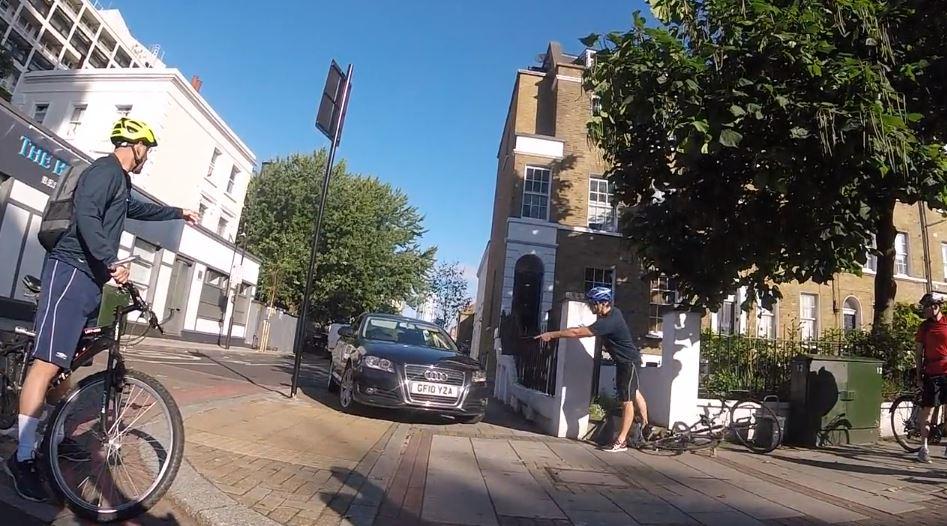 Stunned in Stockwell video still (via Nick Fitzgerald on Vimeo).JPG
Stunned in Stockwell video still (via Nick Fitzgerald on Vimeo).JPGFrom Aberdeen to Sussex: 10 of the biggest cycling news stories of 2018
Our latest article looking back at the events of the past 12 months focuses on some of the big news stories that hit the headlines over 2018 - focusing on events away from racing, which we'll take a look at tomorrow.
The worst cycling event ever?
One of our favourite stories of the year concerned what we wondered may have been 'the worst cycling event ever' - a cycling festival celebrating the opening of Aberdeen's new bypass (from which cyclists are actually banned now it is open).
Initially, cyclists would only be allowed to ride a short section of the new road at the Go North East Road Festival, but not on their own bikes because they would have to take a shuttle bus to get there - and oh, once opened to traffic, they would be banned from the road altogether.
Eventually, 1,500 cyclists were allowed to ride an 18-mile section of the £740 million road at the festival - which was shunned by local cycle campaigners, who instead held a protest in the city centre calling for safer infrastructure.
Cycling UK: Windsor Triathlon participants filmed overtaking horse at speed were “completely irresponsible”
The mainstream media had a field day in June after footage emerged of some competitors in the Windsor Triathlon passing a horse rider at speed with one even striking the animal as he went past on the inside.
Police launched an investigation and organisers Human Race said that they had identified two competitors involved who would be banned from future events.
The charity Cycling UK, which described the cyclists' behaviour as "completely irresponsible," had already been working with the British Horse Soicety on producing a new leaflet on how to pass horses safely on a bike, and you can find it here.
Planned revisions to Highway Code will highlight danger of close passes and encourage ‘Dutch Reach’ to prevent cyclists from being doored
In October, transport minister Jesse Norman announced revisions to the Highway Code that aim to educate drivers over the safe passing distance to leave cyclists, as well as encouraging the ‘Dutch Reach’ technique to prevent cyclists from being doored.
The changes form part of the government’s cycle safety review, announced a year earlier, and the full proposals of which are expected to be announced in the New Year.
As of 1 January, motorists failing to give a minimum of 1.5 metres when passing cyclists will face a fine of £100.
Cyclist who had five bikes stolen says thieves are looking for quick times on Strava to try and find high-end bikes – warns other users to check their privacy settings
In a story that got a lot of attention in September, a Strava user who had five bikes stolen warned other users of the social network to check their privacy settings.
The victim, Adam Jones from Essex, said: “After the break-in, I was thinking it had to have been somebody who knows me – it felt so targeted and very personal. I was starting to look over my shoulder and thinking ‘who could it be?’
“But then after speaking to one of the cycling shops here, the chap said: ‘Are you quick and are you on Strava?’ I had no idea that what criminals are doing is working out where people are cycling and on what routes, then using that to track where they live.
“They are making the correlation between people posting quick times and probably having the better equipment. I was so shocked when I realised what had happened, it must have been like a treasure chest to whoever broke in.”
Jeremy Vine calls out Jeremy Clarkson over criticism of cycling school run mum
In June, two broadcasting heavyweights locked horns as Jeremy Vine took Jeremy Clarkson over a newspaper column in which the latter criticised a mother he’d spotted had seen riding with her children by bike to school in Kensington.
Clarkson had insisted that “cycling in London is extremely dangerous,” but Vine, a cycle commuter who regularly uses Twitter to post footage of bad driving, responded on social media: “No, some people who drive cars are extremely dangerous. That is the issue.”
In his column, Clarkson had said of the cycling mum: “I’m sure that later in the day at the avocado and muesli bar, all her silly friends will have congratulated her for being so ecological and public spirited.
“But the fact is that cycling in London is extremely dangerous and that one day, God forbid, it’s possible one of her children could be killed.”
He added: “Don’t use your kids as pawns in a battle Jeremy Vine is quite capable of fighting for himself.”
Thief who aimed car at south London cyclists pleads guilty
September saw a driver who was filmed repeatedly driving his car at a number of cyclists in Stockwell, South London, plead guilty to a number of offences, including dangerous driving.
Shane Seymour, who also pleaded guilty to the theft of a car and driving while disqualified and two counts of burglary, was arrested three weeks after the incident in August.
It began at a set of traffic lights at Clapham North tube and in which he subsequently caused a cyclist to come off his bike before fleeing when the police arrived.
Legal challenge launched and protests planned against Velo South
Each year it seems there’s one closed road sportive that attracts a big backlash from the NIMBY brigade – and in 2018, it was September’s inaugural edition of Vélo South in Sussex.
Local residents had instructed solicitors to mount a legal challenge to the event, which 15,000 cyclists had signed up for, and were also planning “a safe walking and cycling protest.”
As it was, they needn’t have bothered – the event was cancelled by organisers CSM Events on the weekend it was due to take place due to the Met Office issuing a severe weather warning for the county, with gale force winds forecast.
As it turned out, the forecast winds never materialised – but conditions in the area were very wet and cold, and wouldn’t have been too pleasant to ride a 100-mile sportive in.
Michael Broadwith smashes Land’s End to John O’Groats record
In June, Hertfordshire cyclist Michael Broadwith took more than half an hour off the Land’s End to John O’Groats solo cycling record, covering the 900 miles 43 hours 25 minutes and 13 seconds despite having to battle driving rain and a very painful neck later on.
The three-time national 24-hour champion, aged 40 was cheered on as he passed Shap Summit by Gethin Butler – the previous record holder, whose time of 44 hours 4 minutes and 19 seconds had stood for 17 years.
Highways England proposes banning cyclists from the UK’s fastest time trial course
In January, Highways England announced plans to ban cyclists on safety grounds from England’s fastest time trial course – the A63 Trunk Road near Hull which forms part of the V718 course on which Marcin Bialoblocki set the 10-mile time trial record of 16 minutes 35 seconds in 2016.
National cyclists’ charity Cycling UK delivered 10,000 letters objecting to the proposals to the agency, and said: “It’s a nonsensical piece of logic and if Highways England wants to come up with reasons why cyclists shouldn’t be riding on this road, they need to come up with some evidence-based reasons.”
The campaign worked and in September the Highways Agency said it would not be proceeding with the ban, something hailed by the Cycling UK as “a victory for common sense.”
London school makes pupils who cycle put number plates on bikes
Parents of the 1,200 students at award-winning Stanley Park High School in Carshalton were told in the autumn term by its head teacher, Amit Amin, that if their children wanted to cycle to school, they needed to have a licence plate on their bike.
“We have decided to introduce a cycle registration scheme, and students who cycle to school will soon be issued with a bicycle number plate which must be displayed when riding to and from school,” he said.
“This will help us to identify students who are putting themselves at risk. Students without a number plate will not be permitted to cycle to school, or lock their bicycles on school grounds.”
In response to other stories about requirements set down by schools for those who wish to ride there, Cycling UK earlier this year urged schools to stop imposing rules that it says make it more difficult for children to cycle there.
The charity has published a guide showing how schools can encourage more children to cycle, pointing out that “Active pupils are frequently healthier and more attentive students.”
Latest Comments
- Steve K 4 sec ago
Even if this gets to 100,000 signatures, I suspect the Petitions Committee will simply say there has already been a debate, so no need for another...
- Born_peddling 7 hours 56 min ago
Muddyfox tour 100's I've wide & flat feet plus there's the optional choice of using cleats with them...
- Prosper0 7 hours 51 min ago
Just doing the Lord's work in case anyone's interested in this product. This Mucoff Pump is a £100 rebrand of an £85 Rockbros rebrand of a £60...
- mdavidford 8 hours 39 min ago
Obviously it means 'springing out of the bunch' on a critical sector. Or maybe it's referring to the time of year.
- David9694 9 hours 26 min ago
Car crashes through garden wall for second time in 18 months https://www.wiltshire999s.co.uk/car-crashes-garden-second-time/
- David9694 9 hours 28 min ago
Woman taken to hospital after flipping car onto roof in Trowbridge...
- A V Lowe 10 hours 10 min ago
Its blindingly obvious from the image that the DKE of the buses include the mirrors which extend to nearly reach the edge of the tarmac pavement on...
- Sredlums 10 hours 43 min ago
It's sad when being very good at your job - any job - isn't enough to earn a decent living. It shouldn't be that way....
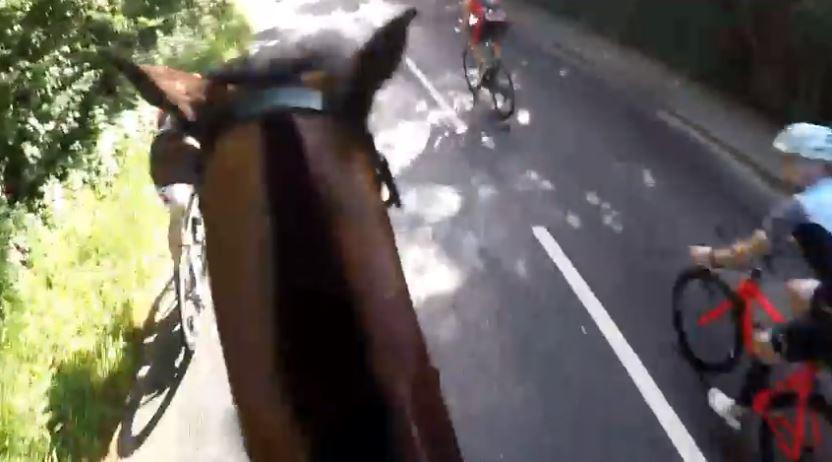

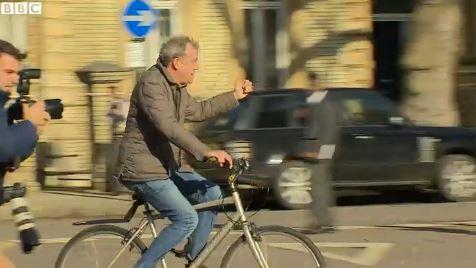
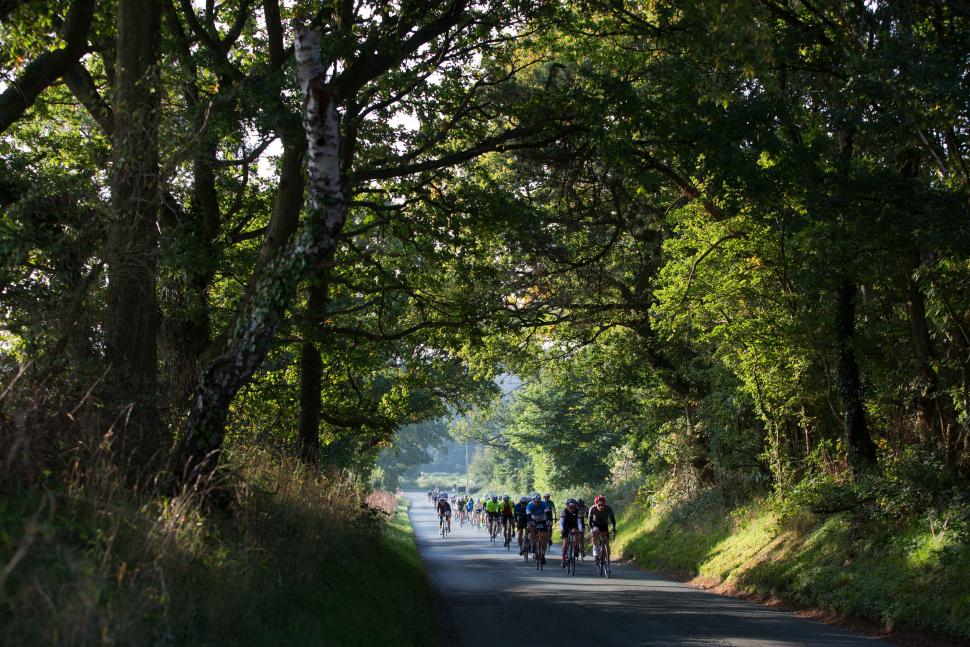

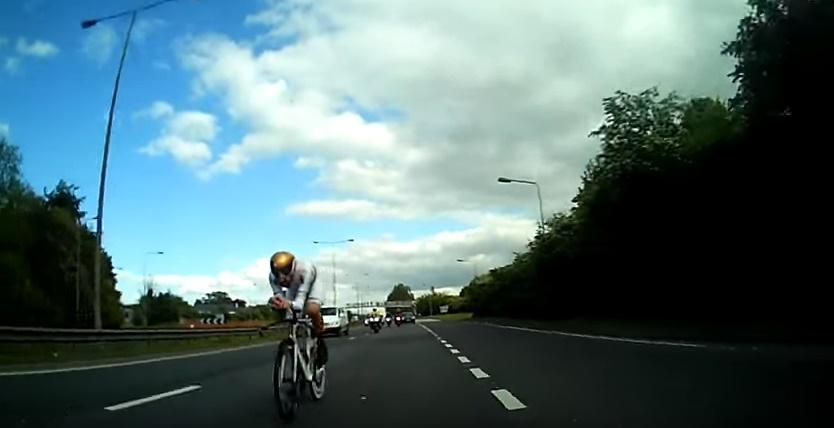

Add new comment
1 comments
Working late tonight, Simon!